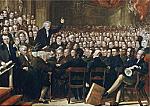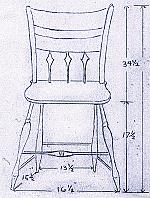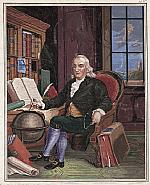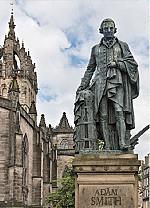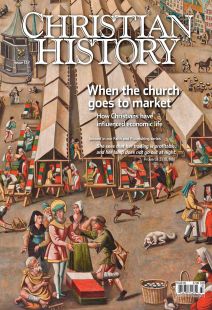Poor Soldiers’ banks
It was the medieval equivalent of the bombing of Pearl Harbor; when Islamic invaders conquered Jerusalem, the Western Christian world responded. Sending military aid to liberate the conquered, they began a series of holy wars known as the Crusades. While the Crusades have rightly faced condemnation from modern historians, they began with this noble purpose.
“These events at Jerusalem have shaken the world,” wrote Bernard of Clairvaux (1090–1153) to the Templar Hugh de Payens (c. 1070–1136). “What could be more profitable and pleasant to behold than seeing such a multitude coming to reinforce the few?” Bernard referred not only to the crusaders taking back Jerusalem, but specifically to the formation of a new monastic order at the site of Solomon’s temple: the Poor Fellow-Soldiers of Christ and of the Temple of Solomon, more commonly known as the Knights Templar. As one of what would eventually become many orders of militant monks, they integrated the monastic ideals of poverty, chastity, and obedience into their martial regimen.
Worldly and otherworldly knights
Bernard contrasted the Templars with worldly knights who sought only riches, fame, and glory for themselves, rather than treasures in heaven. The Templars, it turned out, had a knack for handling worldly treasures as well—not for the sake of their own luxury or pleasure, but rather for the protection of pilgrims’ wealth.
With the Holy Land under papal control, Western Christians flocked there to venerate the holy sites and relics. Still, travel in the medieval era was fraught with dangers. In addition to natural disasters like storms at sea, pilgrims also feared pirates and thieves who sought to plunder the resources they needed to complete their journeys. While the knights could and did protect travelers with their swords, they also protected travelers’ money by establishing the first international banking system.
Empowered by wide-ranging privileges granted by a series of papal bulls, including exemption from taxes and travel restrictions, the Templars set up banks all across Europe and the Mediterranean. A pilgrim in France or Italy, for example, could make a deposit with the Templars in Venice, get a certified bank note detailing the amount, and give that note to the Templars in Jerusalem in exchange for the amount deposited.
This freed travelers from having to carry large amounts of money with them, making them less attractive targets for greedy marauders. It also meant that if they were shipwrecked, their gold wouldn’t go down with the ship. Thus the Templars’ prudent care of people’s earthly treasures enabled many to journey safely on pious pilgrimages to Jerusalem.
Unfortunately for the Tem-plars, their earthly success also led to their downfall. The king of France, greatly indebted to the Templars in the early fourteenth century, sought to discredit them by stoking rumors about their secretive initiation rites. In 1312 Pope Clement V’s papal bull Vox in excelso officially revoked papal support for the order. The church disbanded the Templars, tried their members as heretics, and burned many at the stake.
The sudden downfall of such a popular institution led to the speculation that the Templars who survived had gone into hiding and secretly lived on, sparking many conspiracy theories still discussed today. While these fantastic tales can be fascinating, too often they overshadow the Templars’ most enduring legacy: the establishment of international banking. While it is common to think of banking and finance in worldly—if not devilish—terms today, the Templars’ story reveals the higher vocation of even this most earthly of enterprises.
By Dylan Pahman
[Christian History originally published this article in Christian History Issue #137 in 2020]
Dylan Pahman, research fellow at the Acton Institute, managing editor of the journal Markets and Morality, and author of Foundations of a Free and Virtuous Society.Next articles
Misunderstood missionaries
Colonial enablers or pioneers of social and economic reform?
Robert D. WoodberrySelf-serving vice or society-building virtue?
The long-standing influence of Max Weber’s linking of Protestantism and capitalism
Kenneth J. BarnesSupport us
Christian History Institute (CHI) is a non-profit Pennsylvania corporation founded in 1982. Your donations support the continuation of this ministry
Donate



